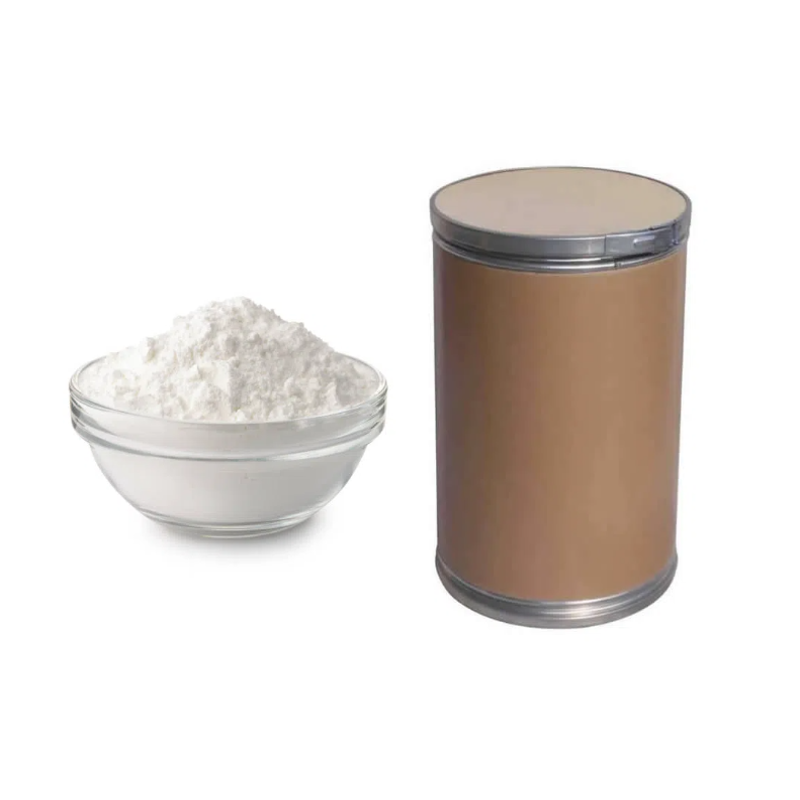-
Categories
-
Pharmaceutical Intermediates
-
Active Pharmaceutical Ingredients
-
Food Additives
- Industrial Coatings
- Agrochemicals
- Dyes and Pigments
- Surfactant
- Flavors and Fragrances
- Chemical Reagents
- Catalyst and Auxiliary
- Natural Products
- Inorganic Chemistry
-
Organic Chemistry
-
Biochemical Engineering
- Analytical Chemistry
-
Cosmetic Ingredient
- Water Treatment Chemical
-
Pharmaceutical Intermediates
Promotion
ECHEMI Mall
Wholesale
Weekly Price
Exhibition
News
-
Trade Service
Explore Xintiandi---MDT Selection Click to watch the highlights of MDT highlights.
In order to promote the communication and interaction of doctors in the field of urinary and oncology, Tan Xintiandi specially organizes the "Anyao Whole Course 2021 MDT Multidisciplinary Diagnosis and Treatment Seminar" and invites different hospitals Experts conduct academic and case discussions
.
In this issue, the MDT team from Shenzhen Hospital of Cancer Hospital of Chinese Academy of Medical Sciences and Second Affiliated Hospital of Kunming Medical College will bring you wonderful discussions
.
At the beginning of the conference, Professor Li Haitao from Shenzhen Hospital of Cancer Hospital of Chinese Academy of Medical Sciences brought us a special report
.
Special report: mCRPC first-line NHT treatment lineup.
In recent years, the 5-year survival rate of prostate cancer patients in China has gradually decreased, and the diagnosis and treatment of metastatic castration-resistant prostate cancer (mCRPC) is a major difficulty
.
However, in the formation of mCRPC treatment, less than 50% of patients can receive second-line and above treatment, and only <15% of patients can receive third-line or later treatment.
Therefore, the choice of first-line treatment is very important
.
A study showed that the first-line treatment of new hormone therapy (NHT) can improve the overall survival of mCRPC patients and become the mainstream clinical first-line treatment of mCRPC
.
Professor Li introduced that whether it is a clinical trial or a real-world study, enzalutamide has significant benefits for the first-line treatment of mCRPC, and compared with abiraterone, the overall survival (OS) benefit is longer
.
At the same time, poor prognostic factors such as advanced age, visceral metastasis, and high Gleason score can affect the benefit of mCRPC treatment.
For this part of patients, enzalutamide has a better benefit than abiraterone
.
In real-world studies, how effective is enzalutamide compared to abiraterone in the first-line treatment of mCRPC patients? Why does enzalutamide benefit better for patients with poor prognostic factors? The answer lies in "read the original text"
.
Case Sharing: Professor Wu Xiaolin from Shenzhen Hospital of Cancer Hospital of Chinese Academy of Medical Sciences, who recurred after radical prostatectomy with isolated liver metastasis, shared a case of "recurrence and isolated liver metastasis after radical prostatectomy"
.
The patient was diagnosed with prostate adenocarcinoma for the first time, with a Gleason score of 4+3=7, and underwent radical resection of prostate cancer
.
The PSA was rechecked 4 years after the operation, and the recurrence was considered
.
After salvage pelvic radiotherapy, the PSA decreased .
After 1 year of radiotherapy, PSA was rechecked, and endocrine therapy was given, but PSA decreased
.
After 2 years of endocrine therapy, PSA increased again, liver metastases were found on imaging examination, and no signs of bone metastasis were seen on the whole body bone scan.
It was a solitary liver metastasis
.
The patient then received arterial embolization combined with radiofrequency ablation therapy, combined with new endocrine therapy + androgen deprivation therapy (ADT), and refused surgery
.
During the case report, experts in the nuclear medicine department expressed their opinions on the advantages of PSMA PET-CT and PET-CT.
The imaging experts introduced the comparison of liver metastases before and after treatment in this case, and the intervention experts shared the chemotherapy of liver metastases.
With the experience of embolization, radiotherapy experts introduced the significance of salvage radiotherapy after radical prostatectomy
.
At the same time, because the solitary liver metastasis prostate cancer is relatively rare, experts from the two hospitals have conducted in-depth discussions on the choice of treatment methods for liver metastases and whether the patient needs to adjust the systemic treatment plan
.
Case sharing: mHSPC treatment passed through Professor Wang Wei from the Second Affiliated Hospital of Kunming Medical College, and shared a case of high tumor burden metastatic hormone-sensitive prostate cancer (mHSPC) treatment process
.
The patient was initially diagnosed as prostate adenocarcinoma (T3-4N0M1), and the IUSP classification was grade 4
.
The patient received surgical castration + endocrine therapy after the first admission in January 2016.
After 2 years, the PSA continued to rise and entered the mCRPC stage, and chemotherapy was added
.
In July 2019, the condition changed again and abiraterone acetate was added, but the PSA continued to rise, so abiraterone acetate was discontinued
.
In July 2020, the patient's PSA>100ng/ml, after perfecting the genetic test, was given local radiotherapy + enzalutamide treatment, the patient's quality of life was relieved, and the OS was prolonged
.
During the case report, the oncologist explained why he switched to enzalutamide
.
During the MDT discussion, Professor Tian Jun expressed his opinions on the bone health management of prostate cancer based on clinical experience.
In addition, Professor Zhang Wenjue explained the timing of radiotherapy or intervention for patients with prostate cancer bone metastases
.
In this issue of MDT, how to treat patients with prostate cancer with solitary liver metastasis? How to manage bone health for advanced prostate cancer? When is the appropriate time for radiotherapy or intervention? For more exciting content, see "Read the original text" for details
.
Click "Read the original text" below to watch the full wonderful special report and MDT discussion







